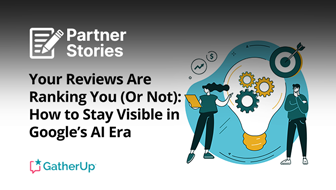Since I began doing SEO in 2012, my biggest dream has been to work as an independent SEO consultant.
However, it was not until a decade later that I was able to realize my dream.
It wasn’t an easy journey, and I made plenty of mistakes along the way. If only I had known then what I know now, I could have achieved my goal in half the time or less.
In this article, I will share with you 10 essential steps to become an independent and successful SEO consultant. These steps will help you achieve your goals faster.
All steps are based on my 12+ years of experience in SEO which includes freelancing, agency SEO, in-house SEO, and professional SEO consulting. Let’s get started.
Make Sure Becoming An SEO Consultant Is Really What You Want
The role of an SEO consultant may seem like an ideal profession, but it’s not for everyone.
Although it offers many advantages, such as autonomy, versatility, and huge earning opportunities, some individuals may find the downsides unacceptable.
Before making a decision to go solo, weigh all the pros and cons.
Some drawbacks of being an SEO consultant working independently include potential deal-breakers:
- You don’t have paid leave, maternity leave, or sick days unless you make special arrangements with your clients or have other passive sources of income.
- You should have at least a few contracted monthly SEO clients to feel relatively secure.
- You will probably be working more than 40 hours a week, including over weekends.
- Work-life balance may be harder to achieve compared to if you had a 9-to-5 job.
If the above doesn’t discourage you, then working as an SEO consultant might be a suitable profession.
1. Become Obsessed With SEO
Obsession with SEO is probably the most important element of being a successful SEO consultant.
Without that, you won’t be able to track and adapt to what’s happening in the world of SEO, which is changing rapidly.
You should live and breathe SEO; learning new things should be your top priority.
This includes but is not limited to a thorough study of the Google SEO documentation, reading popular SEO blogs like Search Engine Journal, Search Engine Land, or Search Engine Roundtable, attending conferences, completing high-level SEO courses, listening to SEO podcasts, or watching other SEO pros share their knowledge on YouTube.
Without obsession, you will quickly become overwhelmed by SEO because this industry is very demanding.
2. Build & Break Your Websites
True SEO experience and knowledge come from practice. The only way to gain practical knowledge is by building and optimizing your sites.
The following may sound harsh, but this is the truth:
- You will never be a good SEO specialist if you don’t have a portfolio of your websites.
- You will never understand SEO unless you build, rank, and break websites.
If you are afraid of getting your hands dirty, then you should not pursue this career.
Theoretical SEO knowledge won’t get you far. I mean it.
In an ideal world, you should have a few websites that are doing well and have a decent amount of organic traffic. You can use those websites to showcase your skills to potential clients.
Additionally, you need a bunch of churn-and-burn websites that you are not afraid of tanking. These are the test websites that you can use to test the craziest SEO techniques.
Want to test if Google can index 100K words in the title? Use your churn-and-burn site to test that.
And this brings us to the next point.
3. Do SEO Testing
Theoretical knowledge is super important, but it gains actual power only after you put it into practice.
Whenever you learn about a new SEO theory or a ground-breaking SEO tip, test it.
Does the method this SEO guru shared work every time?
Will changing the H1 into something else move your page up or down?
Will the result be the same in all cases? Are there any variables that can potentially influence the results?
These are just a few of the questions you should be asking yourself every time you are analyzing whether something works.
Of course, in most cases, you do not want to do SEO tests and experiments on your clients’ sites (unless they want you to and are aware of possible consequences).
The best place to do SEO testing is your test websites.
Did I mention that setting up a test website takes a couple of minutes and costs practically nothing?
4. Work At SEO agencies
The experience you gain working at SEO agencies is probably the most valuable, especially at the beginning of your SEO career.
Not only are you exposed to various projects, but you are also among other more experienced SEO specialists.
Moreover, most agencies provide solid SEO training for new employees. And whenever you get stuck at something, you always have a few smarter SEO pros to ask for help.
In addition, working at SEO agencies teaches you how to work with SEO clients, create work processes, scale your work, and loads more.
Ideally, you should have a few years of experience working at different SEO agencies, both small and big, before going solo.
5. Work In-House
In-house SEO is different from agency SEO. You need a different set of skills to be a good in-house SEO. And to work in-house, you need some previous experience.
As an in-house SEO expert, you are the person responsible for creating and executing the SEO strategy from start to finish.
In most cases, this is what you will be doing as an independent SEO consultant.
Therefore, to succeed as a solo SEO consultant, you will need a blend of in-house and agency experience.
If you are a beginner in SEO, you should start working at an SEO agency and then consider going in-house.
6. Build Your E-E-A-T From Day One
E-E-A-T, which stands for Experience, Expertise, Authoritativeness, and Trustworthiness, is something you should be building from day one as an SEO pro.
Even though initially, E-E-A-T (previously just E-A-T) related only to medical or financial professions, it now relates to every niche that even slightly connects to YMYL (Your Money Your Life).
SEO is no exception. As an SEO consultant, you will impact your clients’ financial and life decisions.
And that’s not the only reason.
Now, more than ever, you need to stand out from the crowd of faceless AI fakes. And the only way to do it is by having and demonstrating E-E-A-T.
Your SEO clients will come to you because they trust you, recognize you, or want to use your SEO experience.
That’s why I recommend starting to build your SEO brand way before you go solo.
Here are the steps that can help you do that:
- Build your SEO consultant website and start sharing your SEO knowledge there. Make sure you are sharing something unique or your unique spin on something. Avoid repeating what others have said thousands of times (especially with the use of AI).
- Share your unique SEO insights, observations, and tips on social media channels popular among SEO professionals (like X/Twitter or LinkedIn).
- Don’t be afraid of tagging well-known SEO professionals in your social media posts or asking them for feedback.
- Publish expert guest articles on well-known SEO blogs like Search Engine Journal. Be aware that you won’t be able to do it right away. You will have to earn your reputation a bit at first.
- Pitch to speak at SEO conferences. If a huge conference does not accept you, try your luck with the smaller ones.
- Publish the results of your SEO tests or your SEO case studies.
- Create your SEO newsletter and share your best knowledge with your subscribers. This will also allow you to be less reliant on traffic from a single source (like only from Google or social media).
7. Network With Other SEO professionals
Real SEO growth and education happen when you combine your knowledge with the knowledge of other SEO professionals.
SEO pros – even the most popular ones and the biggest names in the industry – are super helpful and friendly. They will help you or provide feedback if you ask them.
Don’t be afraid of reaching out to other more experienced or more popular SEO professionals. The worst that can happen is that they won’t answer your message or answer it with a delay.
I had been living under a rock for seven years before I created my SEO consultant website, started sharing my knowledge, and began to reach out to other SEO pros. Don’t make my mistake.
8. Get Prepared For The Transition
Transitioning from an SEO job to an independent SEO consultant does not have to be scary. There are two ways of making the transition.
Depending on how much risk you are willing to tolerate and how much money you have saved up, you can either:
Give Up Your Job And Focus On Building Your SEO Consultancy Full-time
This may mean you will not have any revenue for a few months, so this option may not be possible for everyone.
However, you will have 40 (or probably more) hours a week to build your SEO brand, set up your processes, and/or publish interesting articles about your favorite topic in SEO.
Simultaneously Add Other Income Streams While Still Having A Job As An SEO Pro
This is probably the safest path for most SEO pros, as we all have our financial obligations and families to provide for.
In this scenario, you start building your brand a few years before you plan on going solo.
You go solo only when you have enough revenue from other sources like your own clients or affiliate/sponsorship deals with SEO tool providers.
For me, the transition point was when I had 50% of my income from my job, and I could easily live off the other 50% for 6 to 8 months.
The downside of this option is that you will have to work after hours and probably over weekends for a few months or years. However, it pays off.
9. Tips On Getting SEO Clients
How do I get new clients? How do I make this profitable? What if I don’t have any projects to work on?
The single most scary aspect of becoming a solo SEO consultant is getting new clients and sustaining the existing ones.
Here are my top tips and insights:
- Share your unique SEO knowledge and experience through in-depth articles or video tutorials. If they are good, they will bring you lots of leads.
- Add useful and helpful comments on specific LinkedIn posts where people ask for advice or want other SEO pros to share feedback. Take your time to analyze the topic and provide an exhaustive answer.
- Participate in SEO forums where people ask for help with their websites. Google Search Central Help Community is an excellent place. You will find hundreds of website owners asking for help there.
- Look for websites with serious SEO issues and reach out to their owners with tips and initially free help.
If you are really good and SEO is your passion, clients will find you (unless you are hidden).
If you are a fake looking for shortcuts, hype, and easy money, you may have problems. Sorry!
10. Always Go The Extra Mile
The quote by Zig Ziglar, “There are no traffic jams on the extra mile,” rings very true for being successful in SEO.
Most people won’t go the extra mile to better understand a given issue, explore other possibilities, or analyze something from a different angle.
If you do, you will not only stand out from the crowd, but you will also:
- Have a better understanding of SEO.
- Have more in-depth knowledge.
- Have more experience.
- Be able to provide more effective solutions.
- And be a better SEO pro.
I put this tip at the end because it is like the icing on the cake. It applies to all previously mentioned tips.
If you want to succeed with any of the steps I shared, you always need to go the extra mile. There is no shortcut.
Are You Ready To Leap?
I have completed all the necessary steps, and I assure you that this is all you need to become a successful independent SEO consultant.
You may be feeling scared or doubtful, but it’s perfectly fine. Don’t worry.
It’s not easy to get there, but with determination, it can be done.
You have to take my word for it, but there’s nothing better than waking up one day and telling yourself:
I have finally achieved my dream job and feel free.
Are you ready to take the leap? Have you already started preparing?
More resources:
- Navigating The SEO Career Landscape: Degrees, Myths, And Realities
- Top 8 Skills Every Great SEO Professional Needs to Succeed
- A Guide To Essential Tools For SEO Agencies
Featured Image: fizkes/Shutterstock





